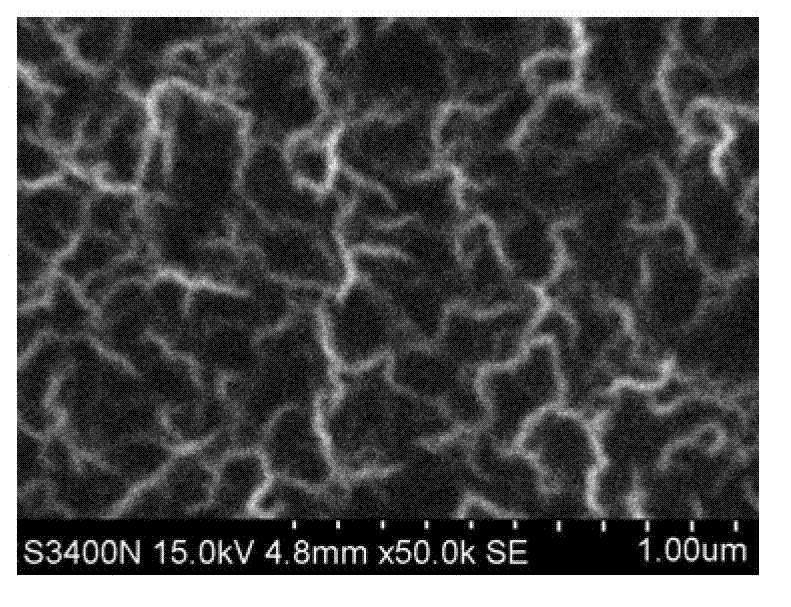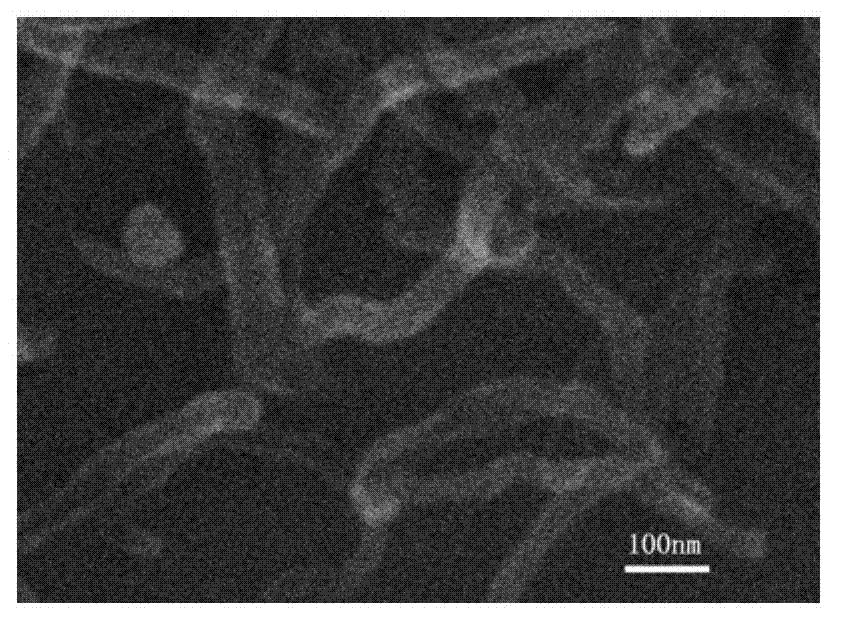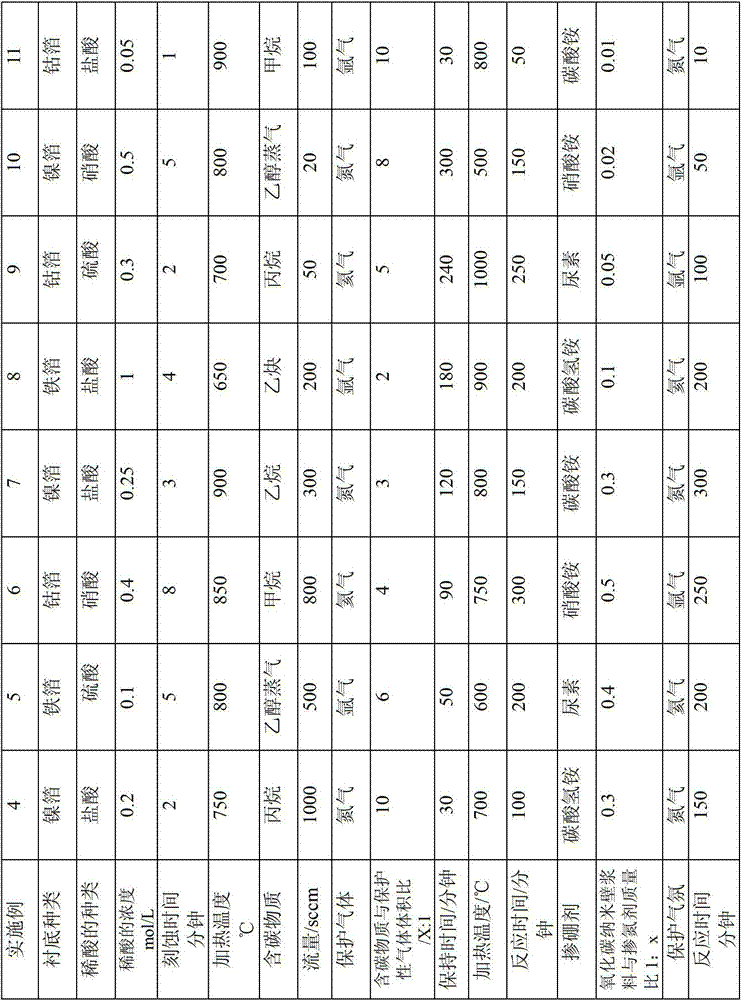Boron-doped graphene nanoribbons and preparation method thereof
A graphene nanoribbon and boron doping technology, which is applied in graphene, nanocarbon, nanotechnology, etc., can solve the problems of graphene nanoribbon size control difficulty, CNW structure damage, low output, etc., to save the cost of research and development equipment , complete structure, and the effect of lowering the reaction temperature
- Summary
- Abstract
- Description
- Claims
- Application Information
AI Technical Summary
Problems solved by technology
Method used
Image
Examples
preparation example Construction
[0024] The preparation process of the boron-doped graphene nanobelt of the present invention is roughly divided into the following steps: 1. Etching the substrate: putting the substrate into a dilute acid solution with a concentration of 0.01 to 1mol / L and etching it for 0.5 to 10 minutes, Clean with deionized water, ethanol, acetone after etching.
[0025] The purpose of this step is to: produce defects on the etched surface of the metal substrate by etching the metal substrate, effectively improve the surface structure of the metal substrate, and enable carbon nanowalls to grow on the surface of the metal substrate.
[0026] Wherein, the preferred time for etching the metal substrate is 60-180 seconds, and the preferred acid solution concentration for etching the metal substrate is 0.1-0.5 mol / L. The above optimal etching conditions can achieve a good etching effect and improve the growth efficiency of the carbon nanowall.
[0027] 2. Preparation of carbon nanowall: Put the...
Embodiment 1
[0037] Example 1: 1. Etching the substrate: put the nickel foil into a dilute hydrochloric acid solution with a concentration of 1 mol / L and etch for 0.5 minutes, and clean it with deionized water, ethanol, and acetone after etching.
[0038] 2. Preparation of carbon nanowall: Put the cleaned nickel foil into the reaction chamber and remove the air in the reaction chamber, heat the nickel foil to 900°C, and then turn on the ultraviolet light source equipment to irradiate the ultraviolet light on the nickel foil On the surface, carbonaceous material methane (flow rate of 200sccm) and protective gas nitrogen are introduced, and the volume ratio of methane to nitrogen is 2:1, and kept for 100 minutes.
[0039] After the reaction is completed, stop feeding carbonaceous substances, stop heating the nickel foil and turn off the light source equipment, and stop feeding nitrogen after the reaction chamber cools to room temperature. Carbon nanowalls can be obtained on the surface of the...
Embodiment 2
[0042] Example 2: 1. Etching the substrate: Put the iron foil into a dilute sulfuric acid solution with a concentration of 0.5 mol / L to etch for 4 minutes, and clean it with deionized water, ethanol, and acetone after etching.
[0043] 2. Preparation of carbon nanowalls: Put the cleaned nickel foil into the reaction chamber and remove the air in the reaction chamber, then heat the iron foil to 600°C, then turn on the ultraviolet light source equipment to irradiate the iron foil with ultraviolet light On the surface, the carbonaceous substance ethane (flow rate: 100 sccm) and the protective gas argon are introduced, and the volume ratio of methane to argon is 5:1, and kept for 200 minutes.
[0044] After the reaction is completed, stop feeding carbonaceous substances, stop heating the iron foil and turn off the light source equipment, and stop feeding the protective gas after the reaction chamber cools down to room temperature. Carbon nanowalls can be obtained on the surface of ...
PUM
| Property | Measurement | Unit |
|---|---|---|
| aspect ratio | aaaaa | aaaaa |
Abstract
Description
Claims
Application Information
 Login to View More
Login to View More - R&D
- Intellectual Property
- Life Sciences
- Materials
- Tech Scout
- Unparalleled Data Quality
- Higher Quality Content
- 60% Fewer Hallucinations
Browse by: Latest US Patents, China's latest patents, Technical Efficacy Thesaurus, Application Domain, Technology Topic, Popular Technical Reports.
© 2025 PatSnap. All rights reserved.Legal|Privacy policy|Modern Slavery Act Transparency Statement|Sitemap|About US| Contact US: help@patsnap.com



